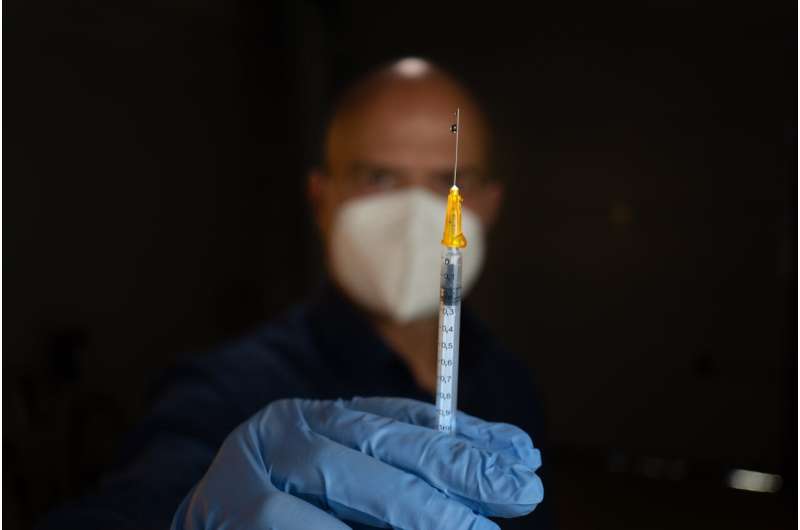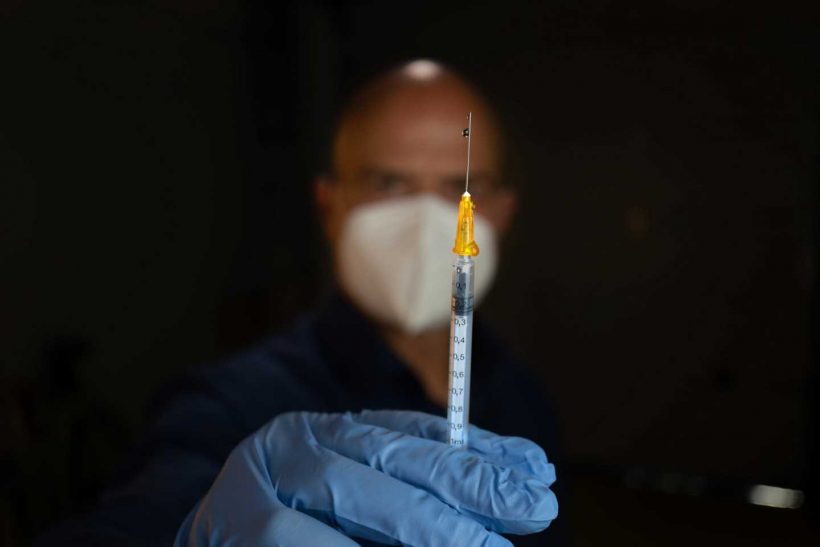
The U.S. Supreme Court is weighing challenges to a Biden administration vaccine mandate that requires eligible employees in Medicare or Medicaid-funded facilities to get vaccinated or receive an exemption.
The law takes effect Jan. 27 in 25 states including Michigan—the other 25 states have challenged the law in court. It will be phased in over several months.
Sheria Robinson-Lane, assistant professor at the University of Michigan School of Nursing, is an expert in palliative and long-term care and nursing administration. Her research focuses on the care and support of older adults with cognitive or functional disabilities, and on ways older adults adapt to changes in health, particularly how adaptive coping strategies affect health outcomes. She discusses what these mandates could mean for health care staffing levels.
Some fear that vaccine mandates could worsen already critical employee shortages in nursing homes and long-term care facilities. Is this a valid fear?
Vaccine mandates have been in place within both hospitals and nursing homes for some time now with exemptions available. I don’t think that a large change in staffing is inevitable.
Staffing in health care organizations that provide direct care is presently a nightmare. In an already stressed field that was experiencing shortages prior to the pandemic, we saw a bit of an exodus at the start of the pandemic. Over the past two years there have continued to be staffing challenges mostly due to managing infections amongst staff and also individuals leaving for perhaps better opportunities. Interestingly, some nurses and nurse assistants have left health care facilities to join staffing agencies where they have the opportunity—in some instances—to make substantially more money.
For those that have been infected by COVID-19, some staff have not been able to return either due to death or a COVID-related disability (long COVID). Presently, here in Michigan, we have four military medical teams that have been deployed to assist at various hospitals across the state. So having a concern about any staffing change, including those that might be precipitated by a vaccine mandate, is valid.
How might vaccine mandates impact hospitals?
They have approached vaccinations a bit differently. The vaccine there was required, exemptions were available there, as well, but perhaps not as easy to obtain, and any staff that was not vaccinated has been furloughed. So I believe that the majority of effects to staffing as it relates to hospitals likely has already occurred.
Further, staff in both nursing homes and in hospitals have found that widespread vaccination mandates have limited available options of employment. One of the persistent arguments for vaccination has been increased immunity and limited community spread of COVID. Omicron seems to be changing this narrative a bit.
What does this mean for health care facilities that don’t accept Medicare and Medicaid dollars?
The vast majority of health care organizations do accept Medicaid and Medicare dollars but so far organizations that don’t accept CMS funds are still following the same COVID related protocols.
It sounds like you’re saying worker shortages were problematic long before COVID. Is there a solution?
Source: Read Full Article
